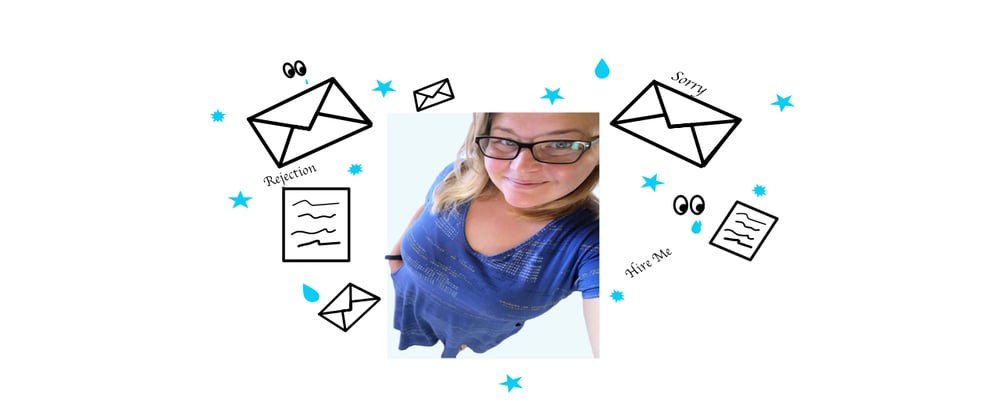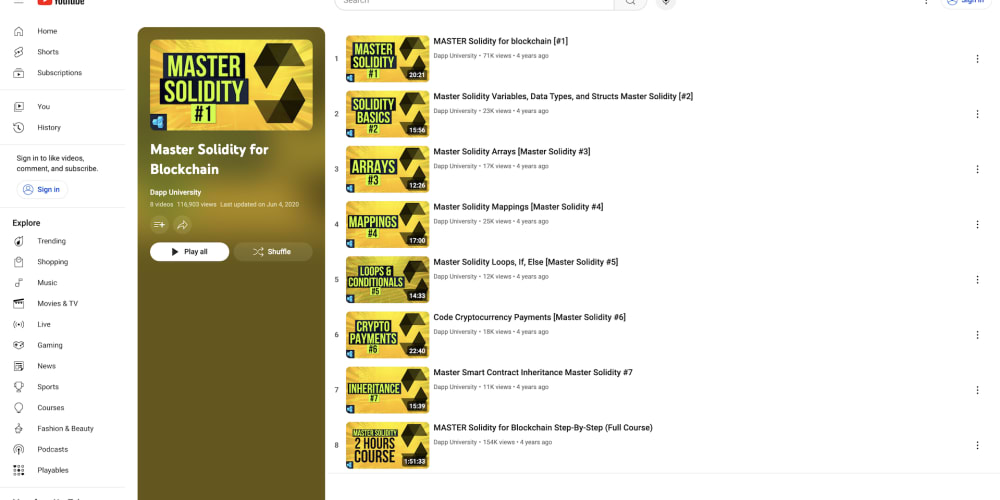Note
When I first started writing this post I was still in the thick of interviewing for a new role and I had a whole lot of emotions.
This was going to be a letter to the companies I interviewed with. I ended up writing out an article that was cathartic for me but not super helpful for anyone else. So I have gone back and revised it now that I am on the other side of interviewing in the hopes that these reflections can help you.
Change
I started the beginning of this year ready for something different.
I knew this meant I would need to interview again. I HATE the tech interview process. I have been a developer for 4 years at this point and have done quite a few interviews.
One thing, I don't begrudge people for but was hard, was when I put out there that I was looking for a new role everyone told me "Oh, you will find something quick!" The truth is I didn't. It took months and many, many, many, interviews before I found my next role. Sometimes you get lucky and find something quick.
Expectations
Now that I have been through the process again, I can give a little more information on the types of interviews I went through and what recruiters and hiring managers were looking for.
Keep in mind these were the things that helped me and may not be the best approach for everyone.
The Resume and Cover Letter
When I got my first job in tech, I created a resume that made me stand out. I recreated the companies website with information about me and why I would be a good fit for the company. They interviewed me and hired me right away. It was great! That was not at all my experience this time around.

At this point in my career I have projects, courses, blog posts etc, that I have worked on and put all of those in to a Notion Doc that I would send with my resume and cover letter.
This Notion Doc was really helpful for companies to get to know me and see what kind of work I could produce. They often had it open and going through it while we were in the initial interview.
If you want to create something similar I used a mix of this Notion Resume template and a Portfolio template I found.
This Doc also helped me get freelance work in the meantime and I was usually able to bypass any interviews because I had all my information right there for them to see.
Cover Letter
When I first started applying to jobs I created pretty generic cover letters. Especially because I was applying to a lot of places.
When I stopped and focused on companies I really wanted to work for I followed the advice from this excellent thread by Josh Comeau. Before I put in the effort detailed there, it was hit or miss on whether I would get an interview or not. After I followed his advice I got an interview from every company I applied to with a customized cover letter. (Your results may vary 😉)
The Resume
My resume is pretty generic but I did take the time to get feedback from several people I respect. (Still need to apply some feedback I got recently 😬)
I also tailored my resume depending on the roles I was applying too. I didn't just apply to Front-end roles so I needed to tailor quite often. Taking that little extra time to read through the requirements for a role and then tailoring my resume to highlight where I fit in was super helpful.
Networking
An often dreaded word in tech.

I've personally spent a good deal of time building relationships in the tech community. Even still I had a hard time reaching out to people and not feeling like I was annoying. I started by being as specific as possible when I reached out. I would have a link to a job and ask questions that pertained to that role and their experience. I didn't always get a response which is completely ok, but I did get a lot of referrals this way.
Interviews
Interviews are daunting. There is no way around that. It doesn't help that unless you are interviewing at a FAANG company (Facebook, Amazon, Apple, Netflix and Google) you probably won't have any idea what the interview process will consist off. Many of my interviews were vastly different but after awhile there were a lot of similarities.
Getting to Know You
This is normally an initial interview with either a recruiter, HR, or sometimes a hiring manager.
This will consist of the interviewer asking more about you and maybe giving you some behavioral questions.
Interviewing at AWS probably helped me the most with these kinds of interviews. They have a specific "formula" called the STAR method which is a structured way of answering behavioral interview questions. Once I learned how to follow this formula interviewing at other companies became a lot easier. I no longer fumbled for responses but could answer most questions thrown at me.
You want to think of a situation, relay the tasks involved, the actions you took, and the results of those actions.
STAR:
Situation - What was the situation you or your previous employer faced?
Task - What tasks were involved?
Action - What actions did you take?
Results - What were the results of those actions?
So for a common question like: "Tell me about a time when you failed."
You want to have a scenario in mind, talk briefly about the task. And expound more on both the actions and the results. Focusing on the last two will keep you from rambling too long about the actual task.
You want to keep these answers to around 2-3 minutes. This also gives the interviewer time to ask follow up questions if they want you to expand on any of the details you provided.
Take Home Assignment
I had various take home assignments. I'll list some of the ones here:
For one company I was asked to use Vanilla JavaScript to create an app along with a Node server.
I was tasked with fetching data from the Magic 8 Ball API. I had to display results to a yes/no question a user could input and then also save that data so that if a user left the site they could come back and see the list of responses. I could add my own styles and/or animations to the site. There were several other guidelines as well I needed to follow.
This task took me longer than the "proposed time" they said it would take. To be honest most challenges I did took me a lot longer than the "allotted time".
Another company asked me to use the Github API along with whatever JavaScript framework I wanted. I had to fetch data for several fields and create a lot of different parameters for what would be displayed.
There was one challenge I ended up letting a company know I wouldn't do. I withdrew my name form candidacy after I saw what they wanted me to do for free. It was a lot. And initially that said it would be a paid project but when it came time to complete it they told me it wouldn't be. That instance plus a few others while interviewing with them was a red flag for me so I decided not to do that challenge.
For other companies, I had a lot of writing prompts I need to complete or whole curriculum outlines depending on the roles I was applying too. I applied to various roles in front-end development, technical writing, Developer Relations and Developer Advocacy.
Live Coding Interviews
This time around I didn't actually have any live coding interviews. I did have a lot of final round interviews where I worked through "real" on the job scenarios with the interviewer. These were nice compared to a live coding interview but were also disheartening when I didn't get an offer. A lot of these interviews I helped solve "real" problems for the company only to hear a few days later that I wouldn't be moving on without any real feedback.
Hiring Manager Interviews
I went through many rounds of hiring manager interviews. Some times they were technical, sometimes they were more behavioral. It varied greatly. The technical ones were hit or miss on how well I did. It often greatly depending on the person interviewing. I had a lot of great conversations with a lot of companies. Most I left feeling ok about. Some were just plain awful.
These were usually because they had no relevance with the actual job I would be doing and I usually felt like they were a waste of both my and the interviewers time.
Feedback
If I went through several rounds of interviews with a company and did not receive an offer, I always asked for feedback. I found if I phrased it like "Hey I really like this company and would love to apply again in the future. Could you give me any feedback on ways I could improve." I would often get a response back.
I would also actually apply this feedback and I did reapply to several places. I try to look at rejection from most places as a "not now" not a "never".
One of them I ended up contracting at for a few months. Another I ended up getting an offer from the second time around (👋 Hey DEV).
Overall thoughts
Job hunting is hard. Job hunting during a pandemic is... not at all fun.
I went through at least 30 interviews with a lot of different companies.
I found a lot of them are not willing to commit right now while there is a lot of uncertainty but they continue to interview candidates anyway. I was strung along on a lot of interview processes and that sucks. If you are interviewing and feeling like companies are either noncommittal or are all together ghosting you, just know you aren't alone.
But now it is over and I have a new role I am really excited about.
It's always easier to look at experiences objectively once you have come through them. I spent the last few months stressed out and cried a few too many times. But now I feel like I can finally breathe.

So to all the companies I have interviewed with, be considerate to future interviewers.
Respect peoples time.
Give feedback so we can all improve.
And thank you for all the "no's" so I could get to this "yes" as DEV's new Open Source Community Manager.



















